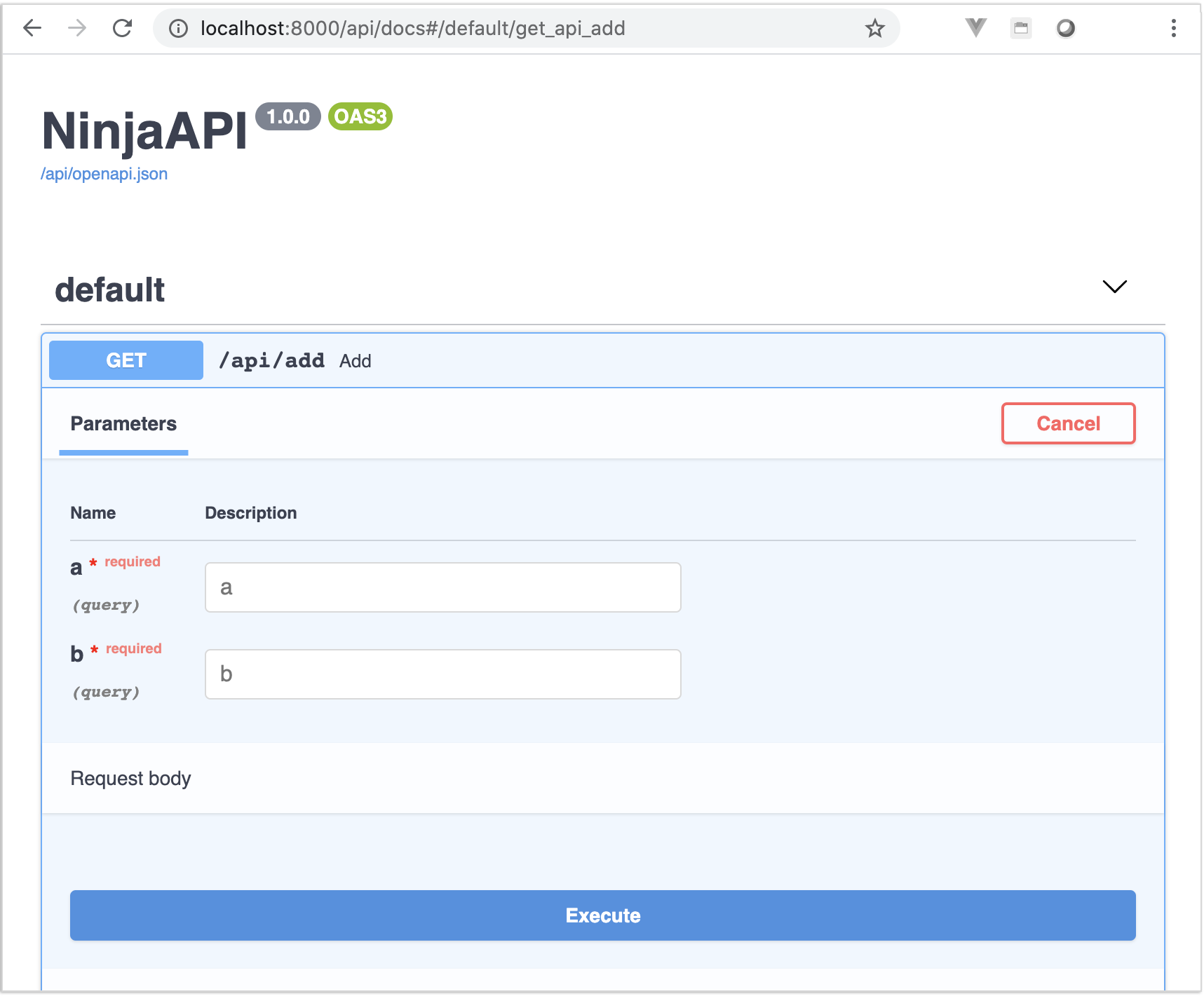Django Ninja - Fast Django REST Framework

Django Ninja is a web framework for building APIs with Django and Python 3.6+ type hints.
Key features:
- Easy: Designed to be easy to use and intuitive.
- FAST execution: Very high performance thanks to Pydantic and async support.
- Fast to code: Type hints and automatic docs lets you focus only on business logic.
- Standards-based: Based on the open standards for APIs: OpenAPI (previously known as Swagger) and JSON Schema.
- Django friendly: (obviously) has good integration with the Django core and ORM.
- Production ready: Used by multiple companies on live projects (If you use Django Ninja and would like to publish your feedback, please email [email protected]).

Installation
pip install django-ninja
Quick Example
Start a new Django project (or use an existing one)
django-admin startproject apidemo
in urls.py
from django.contrib import admin
from django.urls import path
from ninja import NinjaAPI
api = NinjaAPI()
@api.get("/add")
def add(request, a: int, b: int):
return {"result": a + b}
urlpatterns = [
path("admin/", admin.site.urls),
path("api/", api.urls),
]
Now, run it as usual:
./manage.py runserver
Note: You don't have to add Django Ninja to your installed apps for it to work.
Check it
Open your browser at http://127.0.0.1:8000/api/add?a=1&b=2
You will see the JSON response as:
{"result": 3}
- receives an HTTP GET request at
/api/add - takes, validates and type-casts GET parameters
aandb - decodes the result to JSON
- generates an OpenAPI schema for defined operation
Interactive API docs
Now go to http://127.0.0.1:8000/api/docs
You will see the automatic, interactive API documentation (provided by the OpenAPI / Swagger UI or Redoc):

Recap
In summary, you declare the types of parameters, body, etc. once only, as function parameters.
You do that with standard modern Python types.
You don't have to learn a new syntax, the methods or classes of a specific library, etc.
Just standard Python 3.6+.
For example, for an int:
a: int
or, for a more complex Item model:
class Item(Schema):
foo: str
bar: float
def operation(a: Item):
...
... and with that single declaration you get:
- Editor support, including:
- Completion
- Type checks
- Validation of data:
- Automatic and clear errors when the data is invalid
- Validation, even for deeply nested JSON objects
- Conversion of input data coming from the network, to Python data and types, and reading from:
- JSON
- Path parameters
- Query parameters
- Cookies
- Headers
- Forms
- Files
- Automatic, interactive API documentation
This project was heavily inspired by FastAPI (developed by Sebastián Ramírez)